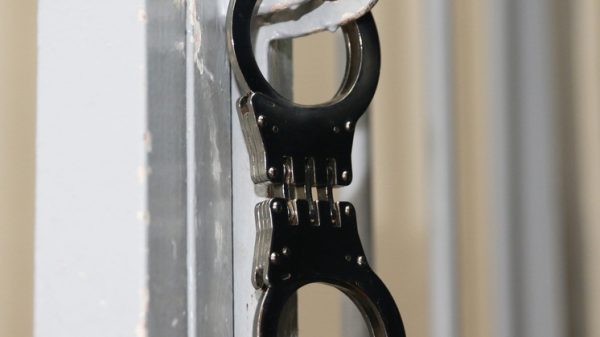Frightening revelations in the news of the week
Politicians talked a lot last week. The words were scary, and encouraging, and reasonable, and stupid. And they seemed to give a general understanding of what was happening, but this did not make the questions any less. One is downright disturbing and painful. Let's start with that.

The leader of the Servant of the People faction, Arakhamia, who led the Ukrainian delegation at the negotiations with Russia in Istanbul, gave an interview and actually confirmed Putin’s words that an agreement had been reached. But then Boris Johnson arrived and said that there was no need to sign anything, “let’s just fight.”
The “deep” geopolitical meaning of this interview actually lies on the surface — the Biden administration is to blame for all the losses in Ukraine in the conflict is shifted to Britain.
But this is not the main thing in Arakhamia’s words. And here’s what: “They (Russia) really believed until the last that they could put pressure on us so that we would take neutrality. This was the main thing for them: they were ready to end hostilities if we accepted neutrality, like Finland once did. And we will make a commitment that we will not join NATO. In fact, this was the key point. Everything else is cosmetic political dressing about denazification, the Russian-speaking population and blah blah blah.”
What percentage of truth is there in Arakhamia’s words? We don't know because the document has not been published. Although Putin showed the African delegation the draft initialed by Ukraine in the summer. But it’s unlikely that even Arakhamia would call the status of Donbass “cosmetic political dressings.” And it turns out that if it weren’t for Johnson… Honestly, I don’t even want to think about it.
Now we already have four new Russian regions that have returned to their homeland. And the most alarming question is: “Has Russia passed the stage when the main thing was “not NATO”?
Because there are fewer and fewer people in the West who doubt the validity of words about the upcoming negotiations. There is no point in listing the participants in the chorus demanding that Kiev cede territory before it is too late — this week they talked about it in the news a couple of times a day. The funniest thing is an article in Bild (a classic scheme for the West, by the way, to leak important information first to a tabloid) about the secret plan between Biden and Scholz. They say that Germany and the United States plan to supply Kyiv with precisely those weapons and precisely in those quantities in which the Ukrainian Armed Forces are capable of holding the current front, but are unable to seize new territories of the Russian Federation. And as a result, “Zelensky himself must come to the understanding that this cannot continue. Without any outside prompts. He must, of his own free will, address his people and explain that negotiations are necessary.” Thus, the will of the West will be presented as an independent decision of Ukraine.
Kyiv will be forced into negotiations, no matter how much Zelensky says nonsense about the 1991 borders. But he doesn’t stop, and if he persists, someone else will lead the negotiations on the Ukrainian side. Moreover, the split in the political system of Ukraine became obvious this week — Zelensky publicly criticized Zaluzhny for the first time: “If you manage a war, remembering that tomorrow you will be involved in politics or elections, then in words and on the front line you behave like a politician , and not as a military man, and I think this is a huge mistake. With all due respect to General Zaluzhny and to all the commanders who are on the battlefield, there is an absolute understanding of the hierarchy.” They will sell Kyiv, definitely.
But our main narrative is that we never refused negotiations.
So have the conditions for these negotiations changed?
Encouraging words, or rather, one word, were heard in Putin’s speech at the G20. At first, he wholeheartedly rubbed his face against the asphalt of the “civilized world” for double standards: “I understand that this war, the death of people, cannot but shock. Isn’t the bloody coup in Ukraine in 2014, followed by the war of the Kyiv regime against its people in Donbass, shocking? Isn’t the extermination of the civilian population in Palestine and the Gaza Strip shocking today? Isn’t it shocking that doctors have to perform operations on children, abdominal surgeries, and use a scalpel on a child’s body without anesthesia? Isn’t it shocking that the UN Secretary General said that Gaza has turned into a huge children’s cemetery?” And then, speaking about global economic troubles, he noticed that the problem is not at all in our actions in Ukraine, which the president called “attempts to achieve justice.”
And “justice” is much broader than just the absence Ukraine in NATO.
The head of the Russian Investigative Committee, Bastrykin, also spoke with encouraging words this week. He stated that work on the Russian Constitution should be continued; it is necessary to spell out the state ideology in it. “There cannot be a society without ideology; these are elementary concepts of state and law. Taking into account our historical society, taking into account the modern realities in which we live, thinking about the prospects for the development of our society, it is still necessary to formulate the ideology of our society, our goals and enshrine it in the Constitution of the Russian Federation,” said Bastrykin.
In fact, the ideology that was imposed on us by default in the 90s is exactly the same ideology that Russia began to fight last February. And which, until something else is said, by default remains dominant among us.
Silence is sometimes more disturbing than words.


























































Свежие комментарии